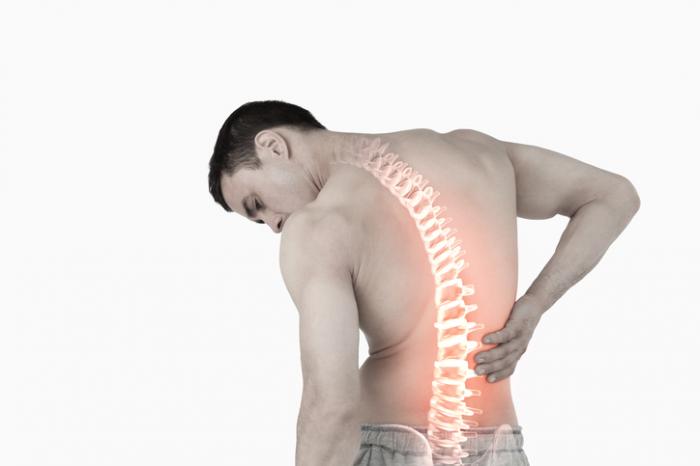Whether mild, severe or chronic, back pain affects almost everyone. According to Statistics Canada, four out of five adults will experience an episode of back pain at some point in their life. However, this does not have to mean that we are destined to live in pain. How we decide to deal with back pain is paramount to our ability to relieve, reduce and recover from it.

(Photo: Courtneyk via Getty Images)
Here are three golden rules for adjusting your attitude and approach to back pain so you can effectively manage it:
Find your champions
The best thing you can do when it comes to finding professional help for your back pain is to have an open mind about different treatment modalities. There is an incredible array of allopathic and complementary treatments available to help you; physio is no longer the be all and end all of rehabilitation. Everybody is going to react differently to various forms of treatment so look around and test different approaches to find something that really works for you. Take the time to find the right combination of professionals. These are your champions who are going to help you maintain your focus; who really get you, support you and provide you the physical care you need to manage your pain. Make sure that they are there to support you mentally and emotionally and assist you manually as well as actively so that your back pain is addressed in an integrated way to help you heal.
The most important thing is to have champions/professionals who do not claim to be able to cure you infallibly, and who do not allow you to dump the entire responsibility of healing, on them. Instead, have people in your corner who pay attention to when something stops working for you, and who are then willing to admit they don’t know the next step and will go there with you to find out what that is. The reality is that there are no tried and true protocols that work for everyone. The sooner you can accept this and get professionals in your corner who are willing and able to coach you through this journey, you will experience far less frustration, and pain as a result.
Revise your relationship with pain
Pain is a godsend. It is the communication tool from our body to our brains providing the crucial information we need in order to survive. Before pain comes discomfort, which is an early warning sign of something going wrong that needs our attention. The lesson: don’t ignore the early signs! A common misconception about back pain is that it has come out of nowhere. The truth is that the issue has been there for much much longer (of course unless it is a back injury caused by a sudden trauma or accident). We frequently underestimate or avoid addressing discomfort until it gets to the point of undeniable or unbearable pain. It isn’t easy to accept that our ‘sudden’ back pain could have been building for a long time, but the sooner we do the quicker we can recover. Once we listen to discomfort and pain, we can begin to map out the long term contributing factors, like our posture and body habits or the decades of repetitive motions – then our story starts to unfold and we can see our pain in a bigger context, embrace our warning systems and prevent future issues.
Embracing pain as a means of understanding what our bodies need is one thing, but we don’t have to tolerate it long term. People with chronic back pain often accept pain as part of their reality. Chronic pain has far reaching effects on us that can be so insidious we don’t even realize the negative impact on our lives. In this case, be brave enough to take the bull by the horns and dig into your mental relationship to pain. What comes up? Fear? Grief over the body you used to have? Work with your team of champions to develop a new relationship with your back pain beyond trying to control it or deny it: then you can really make progress.
Develop realistic expectations
What is progress? The first goal we have when we are injured is to get back to where we were before the injury: we focus on what’s behind us and not what is ahead of us. The reality is that there is now a new normal. This is much easier said than done and intellectually, it makes perfect sense but emotionally, this is a far harder perspective shift than it seems. The sooner you can accept your present reality and how to work towards empowering yourself in this new normal, the faster your recovery will be because you are not looking for something that was, and are instead looking at what is, and how to make the most of that.
Healing is not a linear process. In reality, it’s often a back and forth process. Any exercise that makes you feel like you are getting on track often only has a lifespan of three weeks or three months, then it stops creating the great results that it once did because you are at a new place in your healing process. This can be disconcerting because you may have thought that you found a magic bullet, and then the pain comes back. This is when you will need your champions for support and to devise the next phase of your game plan.
Remember that even when it feels like you are not making progress you always have another chance to regain pain-free mobility. With the help of a team of professionals to support you on all levels and a healthy relationship to pain along with expectations that match the realities of your situation, you can manage your back pain and your overall physical health and well-being.
Source:








